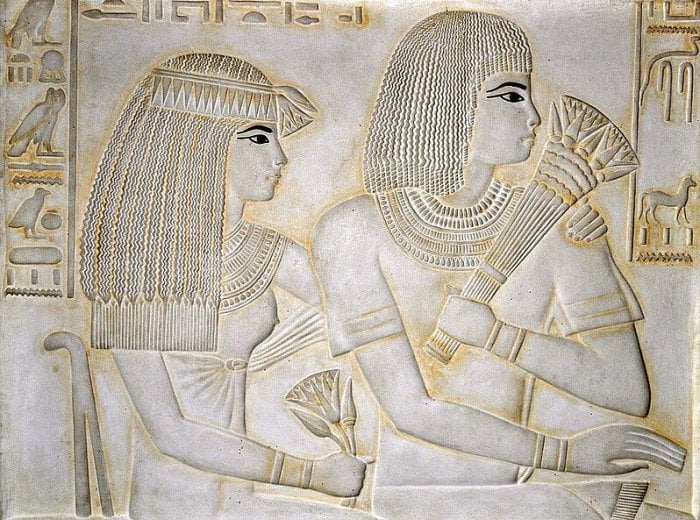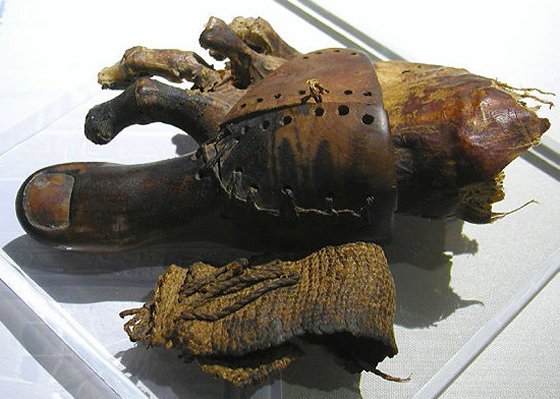Jan Bartek – MessageToEagle.com – The ancient Egyptian woman Merit Ptah is said to have been the first female physician and her accomplishments have inspired many women entering medicine.
No one questions ancient Egyptians’ knowledge of medicine, but Merit Ptah is a historical mystery because there is no solid evidence of her existence at all.
Egyptians Mastered Medicine Thousands Of Years Ago
An ancient inscription made by her son indicates that she was a female chief physician of the pharaoh’s court during the Second Dynasty of Egypt, (c. 2890 – c. 2686 BC) and she is buried at Saqqara, but archaeologists haven’t been able to confirm this is true.

What is known with certainty is that prehistoric physicians in Egypt had an impressive knowledge of the human body and its inner workings, as well as the treatment of illness and disease.
“Proof comes from burial sites, tombs and underground temples where archeologists have found extensive sets of medical documents and scrolls, including the Ebers Papyrus, the Edwin Smith Papyrus, the Hearst Papyrus, and the London Medical Papyrus, which contained the earliest documented awareness of tumors.” 1
Many may be unaware of this, but the first governmental health system was introduced in ancient Egypt. This system was designed to ensure that workers making the king’s tomb were productive.

Prosthetic toe from ancient Egypt. Credits: Jon Bodsworth
Being intelligent and resourceful people, ancient Egyptians also learned to master prosthetic foot technology and produced functioning toe prostheses for amputated limbs.
More than 2500 years ago, Egyptians created artificial toes that helped people to walk. So, there can be little doubt ancient Egyptians possessed extensive knowledge in the field of medicine.
Did Merit Ptah Exist?
Merit Ptah (`beloved of god Ptah’) has been celebrated as the first female doctor for decades, but vital pieces of her history are missing.
Jakub Kwiecinski, PhD, a medical historian, and instructor in the Dept. of Immunology and Microbiology at the CU School of Medicine became interested in Merit Ptah because she seems to be mentioned everywhere.
“Merit Ptah was everywhere. In online posts about women in STEM, in computer games, in popular history books, there’s even a crater on Venus named after her,” Kwiecinski said.
“And yet, with all these mentions, there was no proof that she really existed. It soon became clear that there had been no ancient Egyptian woman physician called Merit Ptah.”
Kwiecinski started to explore Merit Ptah’s historical background and discovered something was very wrong.
According to Kwiecinski, Merit Ptah the physician had her origins in the 1930s when Kate Campbell Hurd-Mead, a medical historian, doctor and activist, set out to write a complete history of medical women around the world. Her book was published in 1938.
See also:
Ankh – Mysterious Ancient Egyptian Symbol With Many Meanings And Unknown History
World’s Oldest Tattoos Discovered On Egyptian Mummies Re-Write History Of Tattoos
How The Hyksos Invasion Of Ancient Egypt Changed History
She talked about the excavation of a tomb in the Valley of Kings where there was a “picture of a woman doctor named Merit Ptah, the mother of a high priest, who is calling her `the Chief Physician.’”
Kwiecinski said there was no record of such a person being a physician.
“Merit Ptah as a name existed in the Old Kingdom, but does not appear in any of the collated lists of ancient Egyptian healers – not even as one of the `legendary’; or `controversial cases,” he said.
“She is also absent from the list of Old Kingdom women administrators. No Old Kingdom tombs are present in the Valley of the Kings, where the story places Merit Ptah’s son, and only a handful of such tombs exist in the larger area, the Theban Necropolis.”
Mystery Of Peseshet Who Bears A Striking Resemblance To Merit Ptah
In 1929-30, an archaeological team in Giza uncovered a tomb of Akhethetep, an Old Kingdom courtier.
Inside, a false door depicted a woman called Peseshet, presumably the tomb owner’s mother, described as the `Overseer of Healer Women.’ Peseshet and Merit Ptah came from the same time periods and were both mentioned in the tombs of their sons who were high priestly officials.
Peseshet was very similar to Merit Ptah.
This discovery was described in several books, and one of them found its way into Hurd-Mead’s private library. Kwiecinski believes Hurd-Mead confused Merit Ptah with Peseseth.
“Unfortunately, Hurd-Mead in her own book accidentally mixed up the name of the ancient healer, as well as the date when she lived, and the location of the tomb,” Kwiecinski said.
“And so, from a misunderstood case of an authentic Egyptian woman healer, Peseshet, a seemingly earlier Merit Ptah, `the first woman physician’ was born.”
Egyptians mastered herbal medicine thousands of years ago.
The Merit Ptah story spread far and wide, driven by a variety of forces. Kwiecinski said one factor was the popular perception of ancient Egypt as an almost fairytale land “outside time and space” perfectly suited for the creation of legendary stories.
The story spread through amateur historian circles, creating a kind of echo chamber not unlike how fake news stories circulate today.
“Finally, it was associated with an extremely emotional, partisan – but also deeply personal – issue of equal rights,” he said. “Altogether this created a perfect storm that propelled the story of Merit Ptah into being told over and over again.”
Yet Kwiecinski said the most striking part of the story is not the mistake but the determination of generations of women historians to recover the forgotten history of female healers, proving that science and medicine have never been exclusively male.
“So even though Merit Ptah is not an authentic ancient Egyptian woman healer,” he said. “She is a very real symbol of the 20th century feministic struggle to write women back into the history books, and to open medicine and STEM to women.”
Written by Jan Bartek – MessageToEagle.com – AncientPages.com Staff Writer
Expand for references- Sutherland – Egyptians Mastered Medicine Thousands Of Years Ago, AncientPages.com
- Jakub M Kwiecinski, Merit Ptah, “The First Woman Physician”: Crafting of a Feminist History with an Ancient Egyptian Setting, Journal of the History of Medicine and Allied Sciences, Volume 75, Issue 1, January 2020, Pages 83–106, https://doi.org/10.1093/jhmas/jrz058






